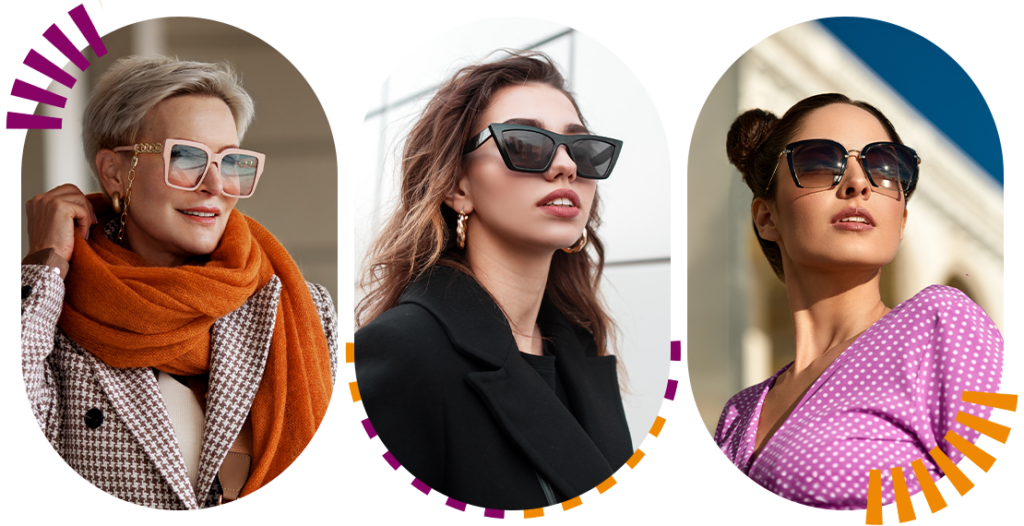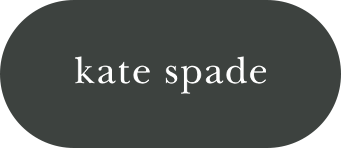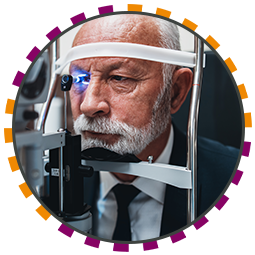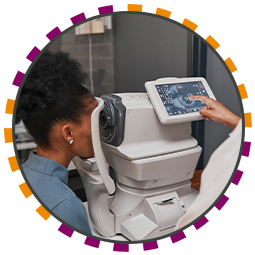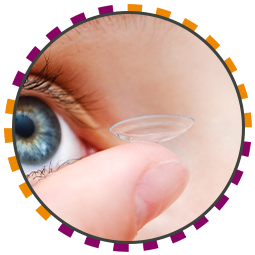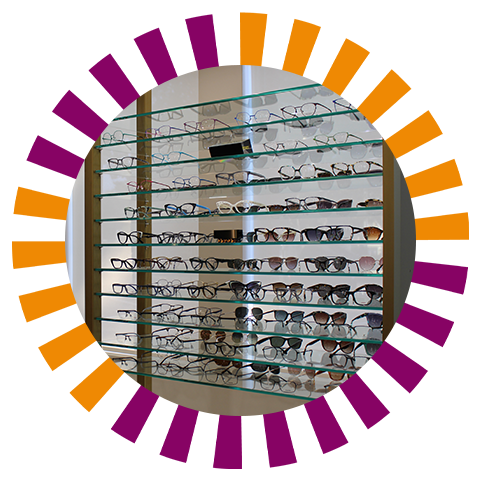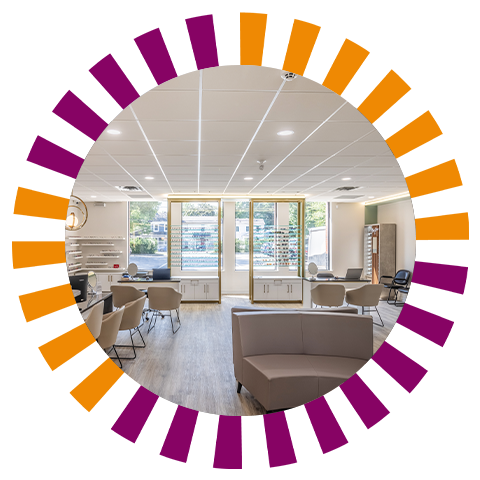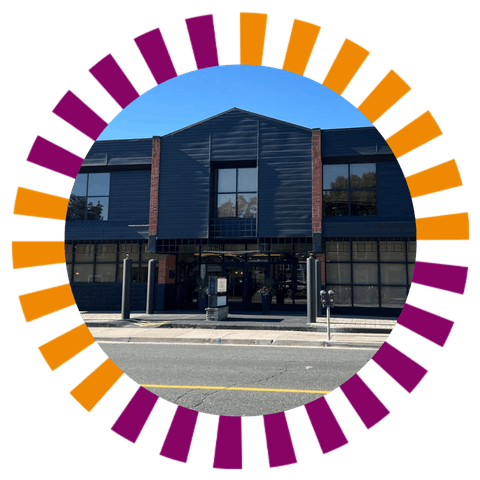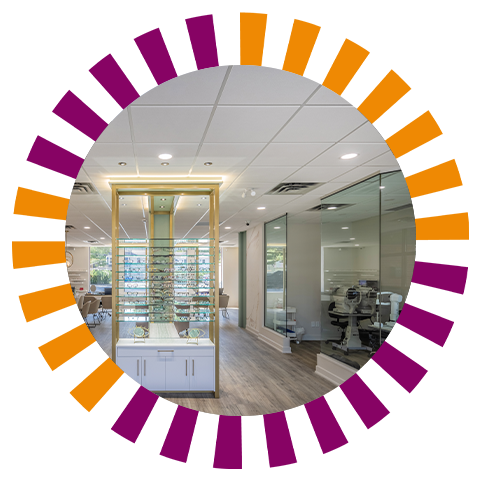Specialty Lenses for Everyone
We offer diverse specialty contact lenses tailored to patients with corneal conditions who may not be able to wear conventional soft contact lenses. From scleral lenses for dry eyes to innovative myopia control lenses to slow down progression, we’ve got solutions to provide you clear and comfortable vision.
Our corneal topography system provides detailed maps of your cornea’s surface, ensuring that your lenses are perfectly fit for your eyes and needs.
Book now to experience the superior quality of vision that specialty lenses can give you!
Book an AppointmentConventional Versus Specialty Lenses
Conventional contact lenses tend to be made of a soft material and are used for correcting common conditions such as near-sightedness, far-sightedness, and astigmatism. They are generally easy to fit on normal corneas and are readily available.
However, soft contact lenses often do not give optimal visual clarity for patients with unique eye conditions. Specialty lenses are rigid lenses that can provide more appropriate optics for patients with irregular corneas and other eye conditions.
What Are Specialty Lenses For?
Specialty contact lenses can dramatically improve the life and visual quality of patients with complex eye conditions.
They often require specialized training and equipment, as well as a longer and more customized fitting process, to achieve a custom-fit for each patient’s eye shape.
If you’re living with one of the following vision concerns or conditions, book an appointment to learn how we can help you.
Dry Eyes
Dry eye is a common condition that occurs when your eyes do not produce enough tears or when your tears evaporate too quickly.
Scleral lenses can provide relief for dry eyes as they hold a reservoir of fluid on the eye.
High Refractive Error
Having a high refractive error means a person has a high degree of myopia (nearsightedness), hyperopia (farsightedness), or astigmatism (oval eye shape).
For some high prescriptions, conventional contacts can’t fully correct vision. In those cases, we can make specialty contact lenses to suit your unique prescription.
Myopia
Myopia–nearsightedness–is a condition where the eye grows too long or becomes too curved leading to blurred distance vision. Orthokeratology (ortho-k) lenses can help correct vision while also helping slow myopia from progressing to higher levels.
Ortho-k lenses can be an effective option for nearsighted children and teens. They wear the contact lenses overnight and remove them during the day. The overnight wear temporarily reshapes their cornea to allow for clear vision throughout the day.
Keratoconus
Keratoconus is a condition where the cornea–the clear surface at the front of the eye–gets thinner and becomes more cone-like in shape. This leads to blurred and distorted vision that cannot be optimally corrected with glasses or soft contact lenses.
Post-Surgical Corneal Conditions
Post-surgical corneal conditions are rare, but can occur after LASIK or other refractive surgery. In these cases, the cornea (the clear surface at the front of the eye) gets thinner and becomes more cone-like in shape (like in keratoconus). This can lead to blurred and distorted vision that cannot be optimally corrected with glasses or soft contact lenses.
Types of Specialty Contact Lenses
Scleral Lenses
You can experience more comfort and clarity with scleral lenses designed for individuals with irregular corneas and dry eyes.
Unlike standard contacts, scleral lenses are large in diameter, vault over the cornea (the clear front surface of the eye), and land on the sclera (the white part of the eye). They provide a clear surface to look through, which can improve vision quality for patients with distorted corneas, like keratoconus.
Scleral lenses also create a liquid reservoir between the back side of the lens and the cornea. This helps patients with dry eyes keep their eyes moisturized and hydrated all day, providing comfort and better vision.
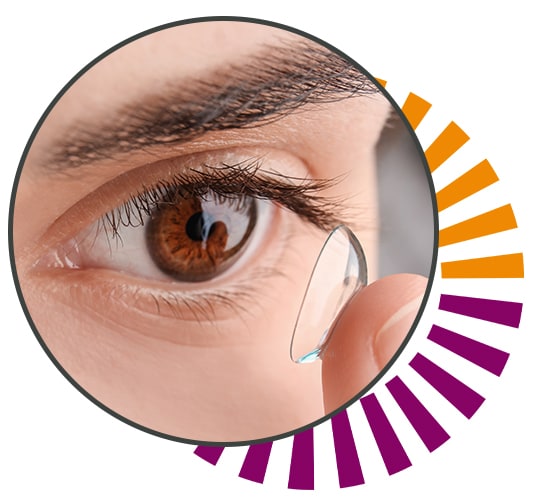
Orthokeratology
Orthokeratology, or ortho-K for short, are hard contact lenses worn while sleeping and removed in the morning for clear vision throughout the day.
They temporarily and reversibly flatten the front surface of the eye (the cornea). The central part of the lens provides clear and comfortable vision. The periphery of the lens alters how light is focused on the retina, a process that can help slow myopia progression by 50% to 60%.
Ortho-k allows active kids to participate in sports such as swimming and basketball without having to wear glasses or contact lenses during the day.
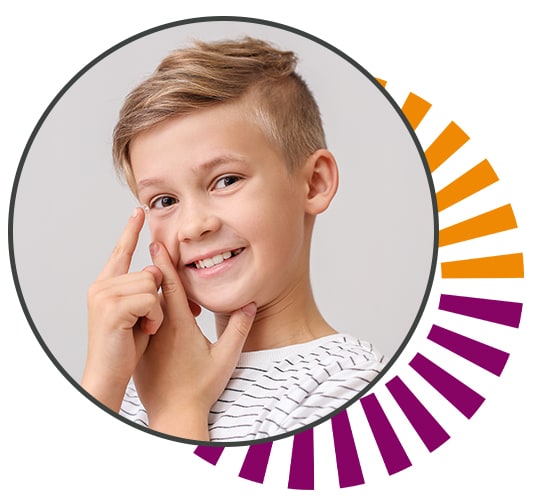
Hybrid Lenses
Hybrid contact lenses are an innovative solution for unique eyes that combines the crisp optics of hard contact lenses with the comfort of soft contacts. The centre of the lens is a hard, gas-permeable (oxygen-rich) lens, while the outside is made of a soft, comfortable lens material.
Hybrid lenses can help provide clear vision for patients with high prescriptions or irregular corneas, while remaining comfortable throughout the day.
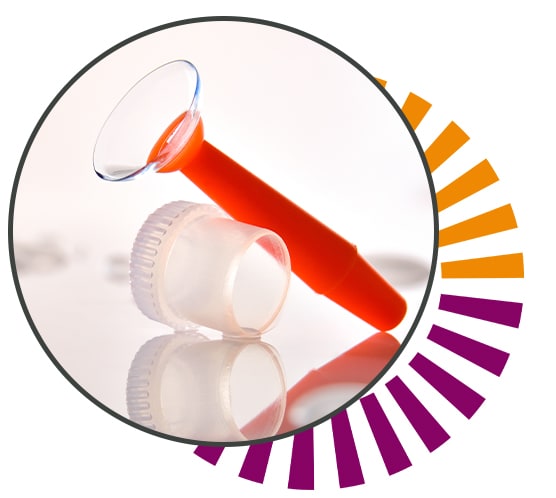
We Can Help You Achieve Your Vision Goals
Let us guide you through the process with expertise and compassion, and enjoy a supportive, personalized lens-fitting experience.
Book an appointment to discuss your vision with one of our trained optometrists to learn if you could benefit from specialty contact lenses.
Book an AppointmentCome Visit Us
There’s ample parking at the back of our new, modern office that can be accessed from King St.
Our Address
- 160 King St W, Lower Level
- Dundas, ON L9H 1V4
Contact Information
- Phone: 905-628-5866
- Fax: 905-628-5542
- Email: info@dundasoptometry.com
Hours of Operation
Hours
- Monday: 8:00 AM – 5:00 PM
- Tuesday: 8:00 AM – 5:00 PM
- Wednesday: 8:00 AM – 7:30 PM
- Thursday: 8:00 AM – 5:00 PM
- Friday: 8:00 AM – 5:00 PM
- Saturday: 10:00 AM – 2:00 PM
- Sunday: Closed
-
**We’re closed Saturdays from June–August & on all holiday long weekends to allow our team to spend time with their families.
Our Brands
